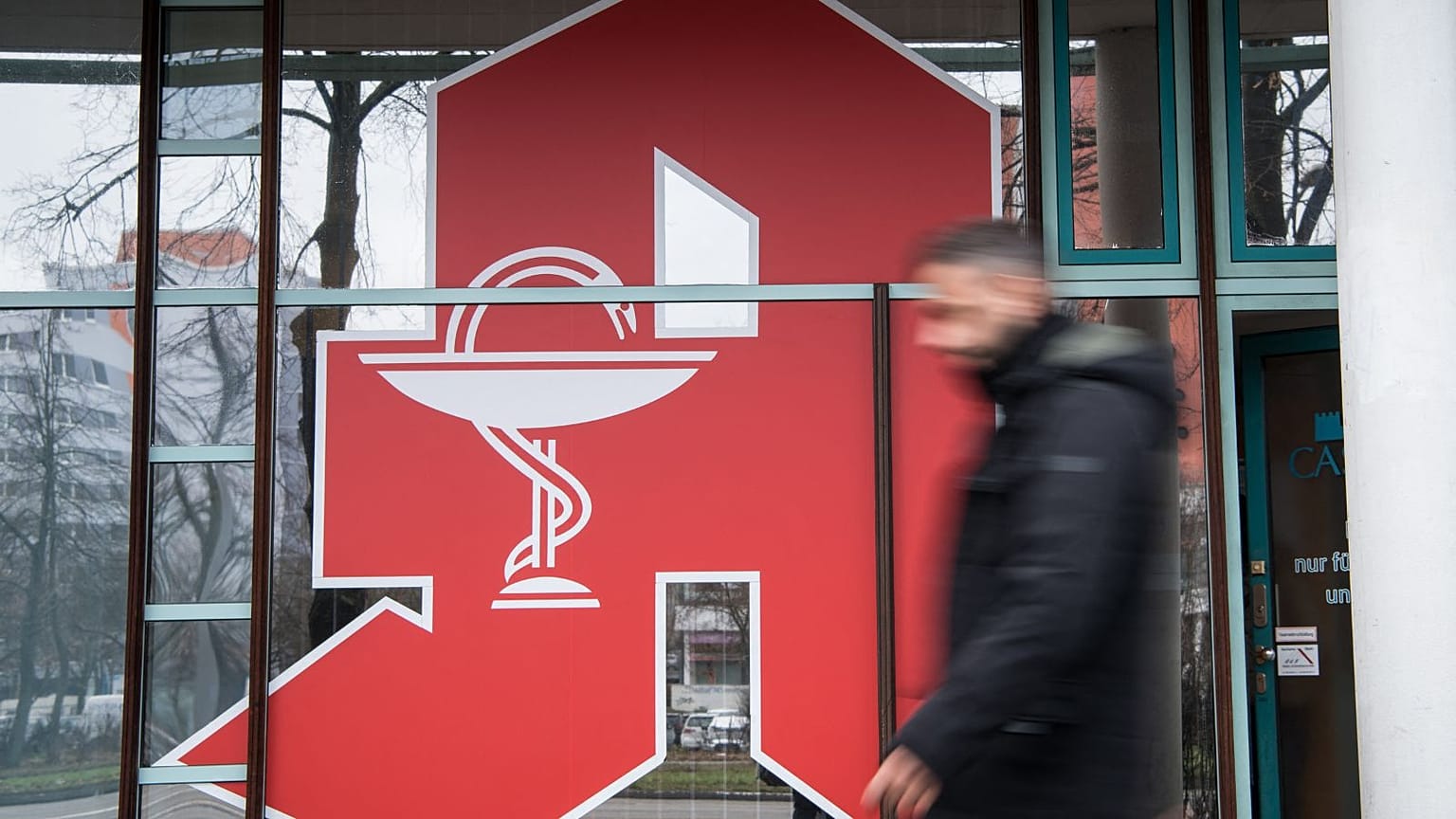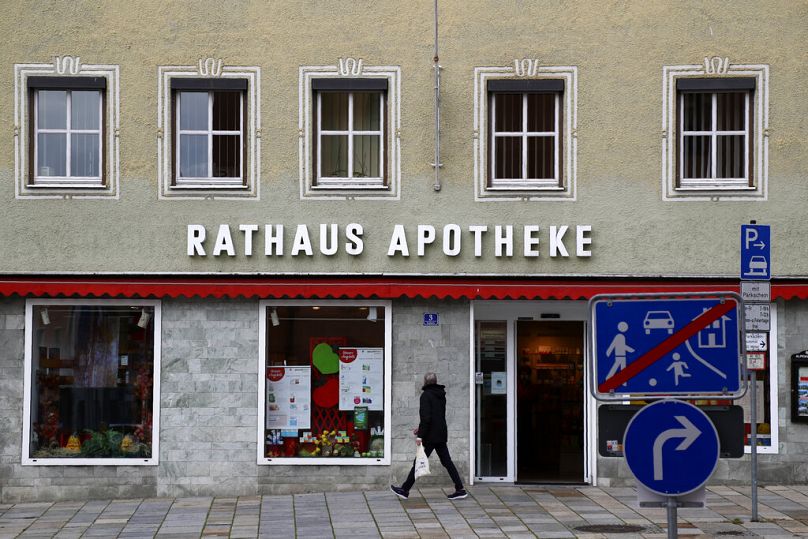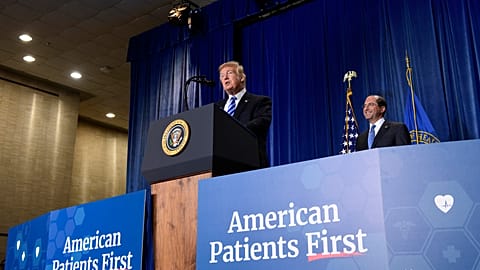More than 120 pharmacies have closed their doors forever in the first three months of the year alone in Germany, as a medicine shortage takes its toll on staff.
Pharmacies have been shutting down at an alarming rate in recent years in Germany, with more than 120 stores closing in the first three months of the year alone, according to data from the Federal Association of German Pharmacists (ABDA).
“We have the lowest number of pharmacies since the early 1980s at the moment,” Christian Splett, ABDA spokesperson, told Euronews.
The number of pharmacies in the country has been declining for some time -- but the decline has really picked up steam over the past year. By the end of 2022, there were just over 18,000 stores open across the country -- 2,800 less than a decade ago, according to newspaper FAZ.
It’s a situation that is leaving many Germans without a crucial link to the country’s health care system, especially in rural areas, as pharmacists are often the first experts people ask for help for their problems before contacting a doctor.
“Pharmacists fulfill a fundamental function in the health care system as well, which you can’t measure by the amount of medicines they sell,” Splett said. “They’re the first point of contact for patients who are unsure about whether they should see a doctor, what medication they can get. And that’s important.”
Why is this happening?
According to ABDA, there are several reasons why pharmacies have been closing at an unprecedented rate, but the main reason is that there seems to be no great future for young pharmacists in the community pharmacy sector -- a major component of the German healthcare system.
“If you ask young pharmacists, they say that basically there is no economic perspective for them, because the government doesn’t actually want to put any money into the system,” Splett told Euronews.
“But also there’s a lot of bureaucracy, a lot of bureaucratic procedures when you run a pharmacy or deal with statutory health insurance companies in particular that are discouraging young professionals.”
This leads to many pharmacies in Germany closing down because their 65-year-old or 70-year-old owner cannot find a successor.
Another issue is that the private pharmaceutical industry pays its staff much more money than any community pharmacy can afford. The health care system is strictly regulated in Germany, and the income of community pharmacies is mainly determined by the expenditure of the statutory health insurance.
“This is one of the reasons why protests are going on, to increase this income,” Splett said.
But every other issue can be linked back to a trio of fundamental problems which have recently emerged in Germany: a shortage of medicines due to increased demand and reduced supply, exacerbated by the lingering impact of the pandemic, rising inflation and the energy crisis.
According to the official national database at PharmNet.Bund, which monitors medicine supply in Germany, over 400 drugs are listed as not available at all in the country.
This shortage is costing community pharmacies a significant amount of time and money, as pharmacists look for alternative ways to serve their patients.
“This time is unpaid, nobody paid for this extra time,” Splett said. “And it’s a lot of bureaucracy. Even if you find alternative medications, then you have to provide a great deal of documentation to give evidence to the statutory health insurance that you have chosen the closest option to the cheapest one available.”
How to fix it?
On 14 June, thousands of pharmacies across the country closed their doors for the day to protest against the increasingly difficult situation they’re forced to work in while their staff see little rewards.
Workers are asking for the government to increase the rate they get paid for every prescription medication they sell, raising it from €8.35 to €12 -- a move which would reflect the way inflation has recently climbed.
Pharmacies have been “decoupled from general economic development,” ABDA said, which is “no longer just unfair, but also an existential threat.”
Splett said that pharmacists are trying to convince the government that things need to change, at least as long as the country is facing medicine shortages.
But Germany’s health minister Karl Lauterbach has rejected pharmacists’ request to receive more money, saying that there’s a lack of additional funding to satisfy staff requests.
While pharmacists are obviously frustrated with the current situation, patients are inevitably the ones who end up suffering the most.
“We have to show society how important pharmacies are for healthcare and how dramatic it would be if even more pharmacies disappeared from their role as a reliable social contact point,” Thomas Benkert, head of the German Federal Chamber of Pharmacists, said, quoted by DW.



















